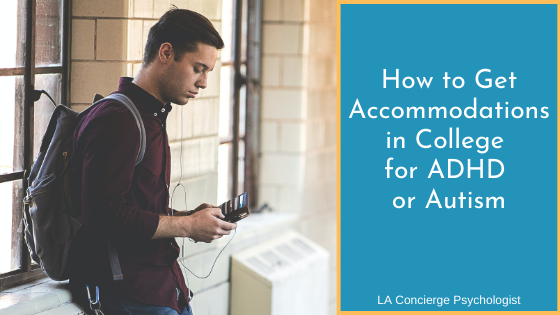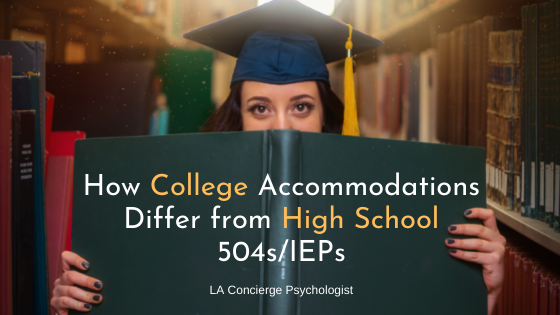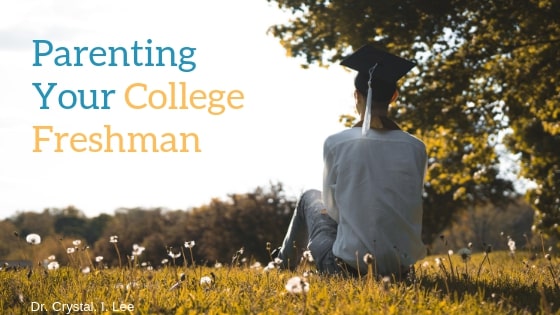Transitioning into college produces major anxiety for most students. This can be especially true of students with disabilities, who must learn an entirely new system for accommodations. To get the most out of the experience as possible, a student with a disability transitioning to college needs to know how to navigate many unfamiliar processes to get their needs met. This can be difficult since disability accommodations in college are very different, and they rely much more on the students’ self-advocacy efforts than they did in high school. But, if students come prepared with the knowledge they need, college might still be challenging, but it will also be an exciting period of discovery and growth.
Prior articles in this series looked at steps to obtain accommodations and provided an overview of the differences between high school and college disability accommodations processes. This article takes a closer look at accommodations and the skills you must have as a student to acquire them.
Research and Accommodations
Each student has a different set of needs when it comes to accommodations. In high school, there was little doubt that those accommodations would be provided, and other people like parents and teachers would handle that. Colleges still have disability offices that facilitate accessibility on campus, but they are not a guarantee. Universities decide what sorts of disability accommodations they offer. Even if students had an IEP or 504 plan in high school, that stops existing right after graduation. It can help the student construct their accommodations needs, but it can’t dictate what the university must do.
Because students are walking into a pre-styled environment, it’s critical to start early research about the schools they want to attend and what disability accommodations those places offer. They must familiarize themselves with different types of accommodations and find out which settings offer the ones they value most. If there’s a specific need that the college won’t cover, it’s better to find that out beforehand so you can apply to a school that’s more prepared to meet your needs.
Advocacy and Accommodations
As we talked about in the previous article, one of the biggest differences between high school and college is who advocates for the students’ needs. Parents and teachers oversaw almost all of that in high school. However, when students come to college, it’s suddenly all on them. It’s new and challenging, but it’s important that you be able to act as your own advocates, seek out support resources, and manage your time. Parents are actually not allowed to be involved in most of this process. Because of FERPA, parents aren’t allowed to look at students’ grades and they are discouraged from involving themselves in the accommodations process. There may be some exceptions, especially when students are just starting college, but universities want to deal with you, the student, directly.
Professors and Accommodations
Another difference between high school and college that students need to navigate is advocating with multiple professors. In high school, if a student had a plan, all teachers were included and directed on how to follow through. College disability offices won’t manage a situation like that. The student must talk to the professor about their approved accommodations, especially because the law prohibits professors from asking students if they have a disability. Meaning, professors won’t necessarily receive information about the accommodations a student needs if the student doesn’t initiate that conversation. This is especially crucial since many professors teach multiple courses and may not even be aware of a student’s disability or accommodation needs.
The classroom can be a difficult place to advocate, but students need to know how to do this. Some professors are understanding and helpful, and others don’t want to help. But, if the university grants a student an accommodation, the professor can not refuse the accommodation. But again, unlike high school, there’s no one above the professor who’s going to hear about the conflict and automatically deal with it. More often than not, the disability office will help the student fix the situation by adding their power to the conversation. However, the student still needs to initiate the process and is in charge of most of the communication. The world of accommodations is much more face to face in college than in high school. This is why it’s also important that students understand what their rights are under the Americans With Disabilities Act, so they can advocate with confidence.
Accommodations and Empowerment
It’s challenging to figure out this new skill in a new environment, but learning to use your voice can be an empowering experience for students. In high school, others manage accommodations. Students’ needs get assessed more rigidly, and adults handle so much of the logistics. But in college, since it’s up to the student to handle their accommodations process, you can learn that your voice has power. You decide, within the university’s limits, what accommodations you need and the best way to make them happen. The self-advocacy skills you learn in college will prepare you to apply those skills at work and other within other institutions.
Accommodations and Community
The process of handling accommodations can be overwhelming and stressful. Finding a support system with others who are navigating the same struggles can provide a lot of information and sense of community. Just because students must manage their accommodations alone, doesn’t mean they can’t build a supportive community. It’s beneficial to reach out to other college students with disabilities for encouragement and support.
Securing Support for the Transition to College
Transitioning to college from high school can be a challenging shift. The academic and social changes from the structure of high school to the independence of college may cause some students to struggle more than they expected. Having the right accommodations, knowing how to advocate for their needs, and being aware of the different processes will help students navigate these challenges more effectively. With self-advocacy, a community of support, and access to the necessary resources, college students with disabilities can thrive.
If you’re a college student struggling with self-advocacy or the general transition to college, send us a message to see how we can help. You can also book a free 20 minute consultation call with one of our specialists to see if they’re a good fit for your needs: Dr. Barajas and Dr. Goldman.



